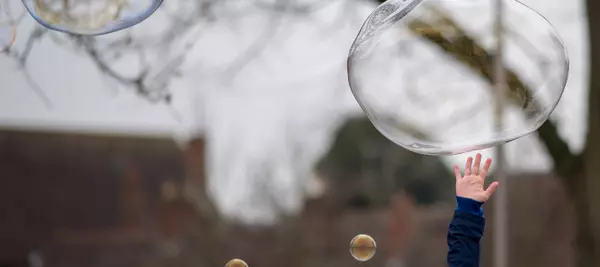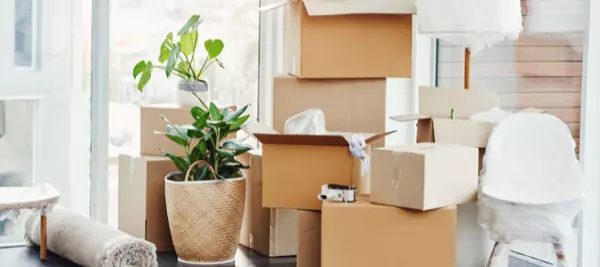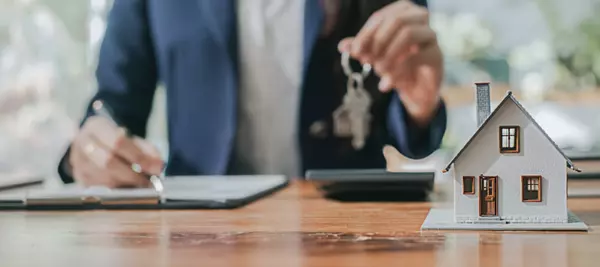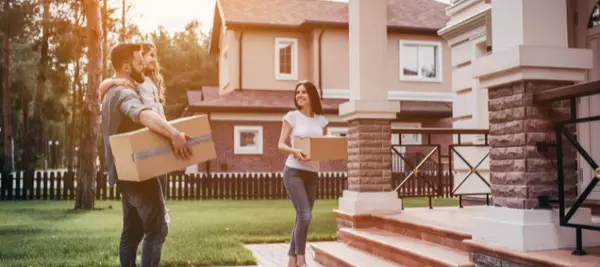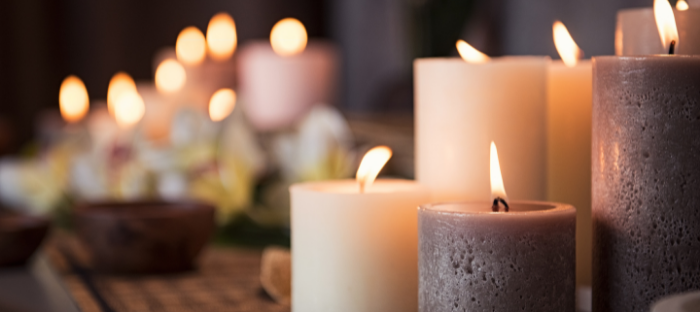How to Fireproof Your Home!
How To Fireproof Your Home!

Get a fire extinguisher.
This might seem like it would be too simple to mention, but you would be surprised how many people do not have a fire extinguisher in their homes.
If you have a fire extinguisher your chances of being able to put out a small kitchen fire, or other small fires in the house, are much greater. In addition to having an extra extinguisher around for emergencies, it is recommended that every member of the family be educated on how to use it properly.
Make sure that the extinguisher is functional. They tend to have a 'lifetime' of 12 years, which is nice but if you can't remember the last time you checked, reading this might be the reminder you need to do a quick check.
Fire extinguishers are a standard part of home fire protection and most fires can be stopped with one. Still, don't be a hero and if the fire goes out of control, prioritize your safety.
Install smoke detectors.
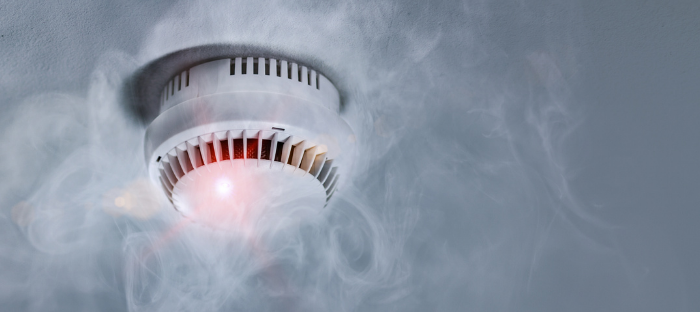
Smoke detectors are essential to fire safety. Working smoke alarms warn you when smoke makes the air hard to breathe and alerts you to a risk of fire. A carbon monoxide detector can provide an early warning signal to a fire in your home.
Install smoke detectors on every level of your home, inside bedrooms and outside sleeping areas. Smoke detectors should be interconnected alarms so that when one sounds, they all sound. Test smoke alarms monthly and change the batteries at least once a year.
If you have a hearing impairment, install flashing smoke alarms with strobe lights to help you hear the alarm.
Smoke inhalation can be deadly because your lungs cannot process air that has too much carbon monoxide. It's better to deal with some flashing lights and alarm sounds than the beginning of a home fire starting up when you're sleeping.
Hard wired smoke alarms are the best thing you can add to your home as they are connected to a power supply and only use their batteries in the event of a power cut. After all, a smoke alarm constantly beeping for batteries is more in the category of nuisance alarms than an effective alarm that fire marshal would recommend.
Rearrange your furniture.
Don't place wicker chairs too close to wood stoves, in fact, flammable materials close to potential fire hazards are a big mistake.
Residential fires get exponentially worse and spread quicker when furniture starts burning. But they are also far more likely to happen when you overload your living area with combustible materials.
Allow at least three feet of space between a hot stove or fireplace and everything else, including wall corners.
Keep flammable items away from any possible source of heat or flames. Loose papers, pillows, curtains, towels and anything else that goes up in flames easily should be kept far from a potential fire hazard.
Use Candles Appropriately
Far too many house fires start with candles.
Be very careful when having candles in your home. Do not leave them unattended, be sure to blow them out even if you're stepping out of the room for a moment, and never put them near flammable materials.
Placing several on the mantlepiece is inviting disaster. Young children may be tempted to play with candles and teaching them about the dangers of a fire is a big part of your fire protection system.
If you have a pet, be sure to keep them away from candles, too - even the wagging tail of a dog or a curious cat's paw can easily knock over a lit candle. Even if you practice fire drills regularly, it's best not to need to guide a pet out of an actual burning building.
Regularly clean your chimney and fireplace.
This cannot be stressed enough. Creosote buildup is one of the number-one causes of chimney fires.
Creosote is a flammable material, the result of incomplete combustion. It can accumulate in your chimney and catch fire when exposed to extremely high temperatures, such as from a chimney fire, causing a chimney fire.
To prevent creosote build-up you should have your fireplace cleaned annually by a professional.
Inspect your electrical wiring.
Faulty electrical wiring can easily spark and start a fire. Regularly inspect your home's electrical wiring, especially if it's old, and replace any wiring that is frayed, exposed or brittle.
An electrical system is a non-negotiable part of modern homes, and part of your fire prevention precautions is making sure that things like electrical outlets and exposed wires are fixed as quickly as possible.
Fix issues with waterproofing.
This may seem counter-intuitive but failing waterproofing can introduce water to your electrical system and compromise your electrical safety.
Water dripping on fuse boxes is an obvious red flag but make sure that if you suspect water damage, make sure that it is not impacting your home's wiring.
If you have a fire sprinkler system, it's important to make sure that no part of the sprinkler system is leaking and weakening the waterproofing of your house.
Fire sprinklers can be expensive to install and not worth the trouble in a residential building but if you're in charge of an office with fire sprinkler systems, it would be a good idea to check their effectiveness when possible.
How to deal with fire hazards.
Not everyone can invest in fire doors or have the fire captain live next door so it's important to minimize risks so that emergency responders won't even have to be called.
Look at your kitchen and think about how you could stop a grease fire. A smoke detector and cleaning your stove-top regularly can prevent fires but fires happen despite all the goodwill in the world. Grease fires cannot be extinguished by water so your choices are either fire extinguishers or smothering the flame - something that can be dangerous.
If you have heating equipment like space heaters, make sure that they have plenty of room to operate. You don't want fire alarms going off because someone put a shirt over the heater's vents.
If you store flammable liquids, keep them far from open flames or places where a fire could start easily.
To prevent house fires sometimes means not doing your nails next to the stovetop - nail polish and nail polish remover are actually very flammable.
Smoking materials, like lighters or other easily inflammable equipment, need to be kept far from large flames like those from a stovetop.
Though they smell amazing, do not put an orange over an open flame. Juices within the fruit will fuel flames faster than most would expect.
Clutter. Sometimes, a broom and a few trash bags are pieces of fire safety equipment. You don't want your fire escape plan compromised because of an untidy home.
Contact your fire department.
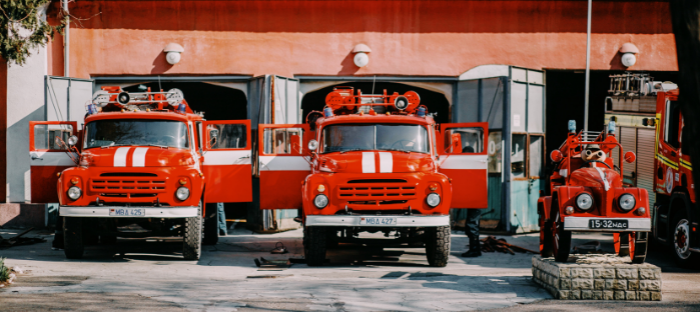
Though your neighbourhood fire administration is obviously busy, it never hurts to reach out when you have safety concerns about your home.
They may advise you to use a different fire alarm or invest in a different type of home fire safety that is best suited to your home's climate.
Your fire department may exist to put out house fires but they are also very much invested in fire safety and fire prevention.
They may even find things that you may not think of like a fire escape ladder or spots that are likely to cause electrical fires.
Educate your family about fire safety and what to do in the event of a fire emergency.
Have a plan in place so everyone knows where to meet and what steps to take. All the fire safety tips in the world are not going to replace a good fire escape plan.
A home fire is a harrowing experience and no one wants to be part of home fire deaths statistics.
What you want is to prepare your family so that before they even reach their bedroom door, and until the emergency services arrive, they know what to do.
Go over the location of the fire extinguishers, make everyone memorize the escape route, and remember the basics of your fire safety plan.
Get a fireproof safe for important documents and valuables.
Despite your best-laid fire escape plan, sprinkler systems fail, electrical fires happen, and the best form of fire protection is to leave.
In that scenario, it's important to have a fireproof safe that can store the things you cannot afford to lose like birth certificates, titles, or other important items.
Home fire safety also means not needing to run back into a house with a fire alarm blaring just to get an important document.
Making your home safer from fires is something that should be done at all times, but especially during the winter months when heating devices are more likely to be in use.
View All Homes For Sale in Greater Vancouver >>>
About Search Home Listings
SearchHomeListings.ca has simplified the home buying and selling process by giving you superior tools with up-to-the-minute information including active homes for sale, sold homes, market reports, and a home valuation tool! We have a team of success managers on standby to support you with setting up your saved home search and agents ready to take you out on a tour. Tap into our industry experts from inspectors, to contractors to interior designers to provide you with the best prices and service possible. Everyone attached to our website has been rigorously vetted and is made up of caring, knowledgeable professionals that work tirelessly to help you to make your home buying experience as stress-free as possible. Contact us today to see how we can help!
Sites We Follow
Categories
Recent Posts


